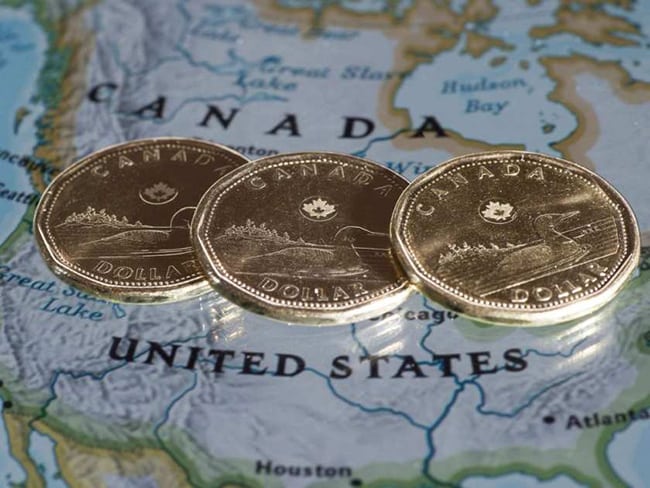Several American businesses are freezing their prices and trying to appeal to Canadians in a bid to have them cross the border this summer.
The loonie’s ongoing drop — which began in 2014 — has led to many people choosing places other than the U.S. for vacation.
Last year, about 1.29 million people crossed the Quebec border into the U.S. for at least one night between June and August. This was a 13.6-per-cent drop compared with the same period the previous year, according to Statistics Canada.
However, 686,000 American tourists spent more than a night in Quebec between June and August 2015 — an 11.8-per-cent increase over the year before.
Suzanne Beaulieu, owner of Kebec 3 Motel in Old Orchard Beach, Maine, whose business is 90 per cent from Quebec, said the strength of the U.S. dollar has had a significant impact on her establishment.
“Last week, over three days, it was clearly indicated that we had space here and no one stopped by,” she said during a phone interview. “It’s been years since this has happened.”
The 35-room motel is booked solid until Aug. 26, but Beaulieu said the peak season used to last until late September.
Furthermore, she used to rent rooms in her motel for entire weeks, something that has changed in recent years.
“We had many people last year who would book for a week and now come for a three- or four-day stay,” she said. “We haven’t increased our prices in four years.”
In other places, like Kissimmee, near Disney parks in Orlando, Fla., several businesses are offering rebates of up to 30 per cent per night, depending on the date.
On the local tourism office’s website, some ads clearly indicate that these promotions aim to help Canadians who are affected by the weak loonie.
Scottsdale, Ariz., went a little further last fall and opted for an ad campaign called Loonie Love, specially designed for Canadian tourists, offering discounts on hotels, events and activities such as golf course entries.
“We saw there was a need for discounts and promotions,” said Stephanie Pressler, an administrator at the Scottsdale Convention and Visitors Bureau. “Canada is our most important international market when it comes to tourism.”
Arizona’s tourism office, which does not offer city-specific statistics, said more than 928,000 Canadians visited the state last year — a three-per-cent increase over 2014.
In Vermont, a sought-after location for Quebec tourists, the loonie’s slip hasn’t had a noticeable impact on tourism, according to the state’s tourism department commissioner, Megan Smith.
“Restaurants and retail have remained active,” she said. “We have had no reports of a lower number of clients due to the declining dollar.”
However, certain locations, like Jay Peak, accept Canadian money at par with the U.S. dollar. Smith said those promotions vary from place to place and are not offered by all business owners.
© Montreal Gazette

